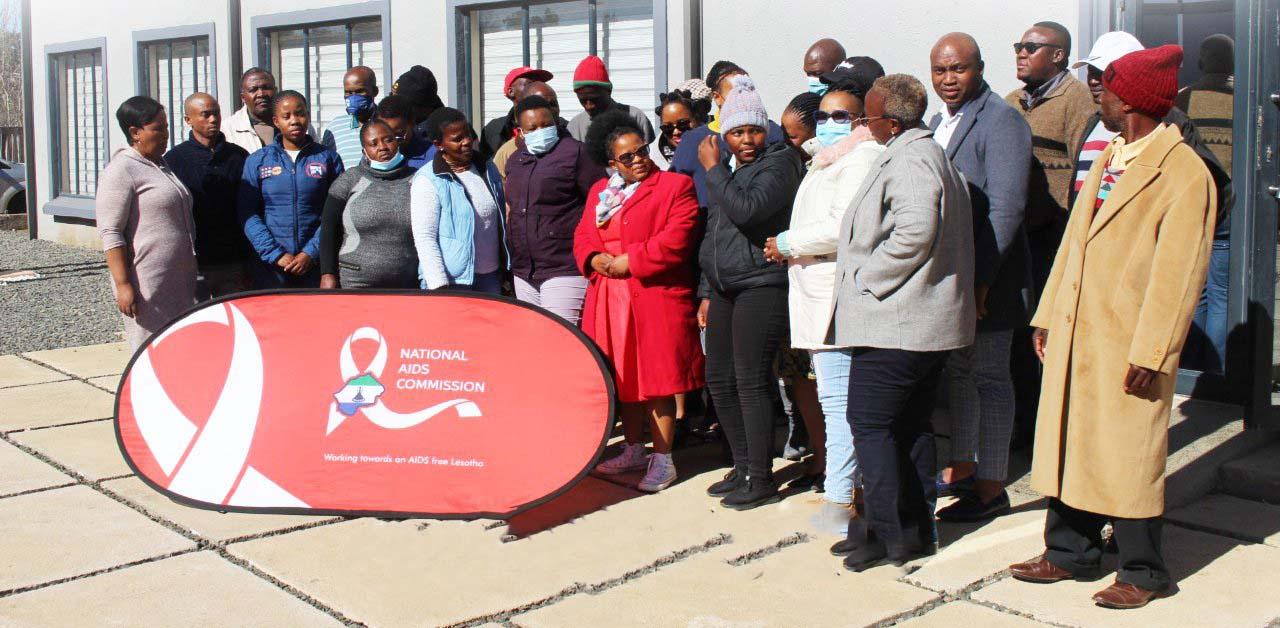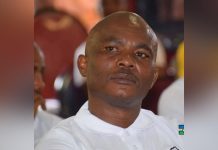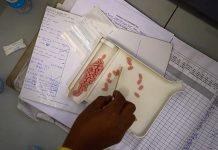Africa-Press – Lesotho. As the first step towards decentralisation of HIV services, District AIDS Committees (DACs) were resuscitated and provided with both financial and technical support to develop their respective District Fast Track Plans (DFTPs).
As preparation to roll out implementation of these DFTPs, three district AIDS committees: Mohale’s Hoek, Quthing and Mokhotlong; were provided with capacity building after which implementation followed suit.
Furthermore, three more districts were chosen according to challenges they face. Botha-Bothe, has a development site with Ha-Belo factory that will see an influx of people it starts operating which will boost its status as a district with the lowest HIV prevalence in the country.
Thaba-Tseka has been experiencing a worrisome rise in child marriages while for Mafeteng, LePHIA showed the district has the highest prevalence in the country.
The committees in these three districts were capacitated and now National AIDS Commission will provide more support to implement their District Fast Track Plans focusing on HIV prevention interventions to adolescent girls and young women and their partners.
Speaking during the meeting in Thaba-tseka, Chief Motale Motale said they are going to work very hard to end child marriages in the district, while at the same time working to disseminate information about early marriages, working together with partners.
According to Chief Motale, child marriage robs girls of their childhood and denies them the chance to determine their own future while posing grave threats to their health.
As a result, he said they are going to engage the police, through the child and gender protection unit, to end gender based violence, which also fuels HIV infections.
He said addressing violence and gender inequality is therefore essential to ending the AIDS epidemic and protecting the human rights of all people to safety.
“Ending child marriage is essential to enable a lot of girls an opportunity for a better life and to realise their full potential, while improving maternal and child health,” he added. Mooka Ts’oeu, EGPAF programme performance improvement officer said GBV is a contributing factor to HIV prevalence.
He said it affects both men and women, further noting that it is a grave abuse of human rights, a risk factor for HIV infection, and a consequence of stigma and discrimination against people living with HIV.
He said addressing violence and gender inequality is essential to ending the AIDS epidemic and protecting the human rights of all people to safety and equality. Globally, community leaders are said to be an integral part of life and society and are found within every community.
They have credibility because of their involvement at the grassroots level, their involvement with people in every aspect of their lives, and for many services they offer.
In response, National AIDS Commission (NAC) has engaged community leaders, who are highly effective at motivating their communities in the fight against HIV. Traditional healers have also pledged their support in the fight against HIV and TB as well.
National AIDS Commission on behalf of the Government of Lesotho, through the support from the UN Family Agencies, UNFPA, UNAIDS and UNDP, have made notable progress towards fast-tracking implementation of the National HIV & AIDS Strategic Plan (NHASP) 2018/19-2022/23.
The NHASP recommends development of the District Fast Track Plans that are responsive to the Lesotho National Decentralisation Policy of 2014. The purpose of this policy is to deepen and sustain grassroots-based democratic governance and promote equitable local development by enhancing citizen participation.
It further aims to strengthen the local government system, while maintaining effective, functional and mutually accountable linkages between central and local governments entities. The target participants for this exercise shall be the Community Gatekeepers, and various groups within communities.
For More News And Analysis About Lesotho Follow Africa-Press






